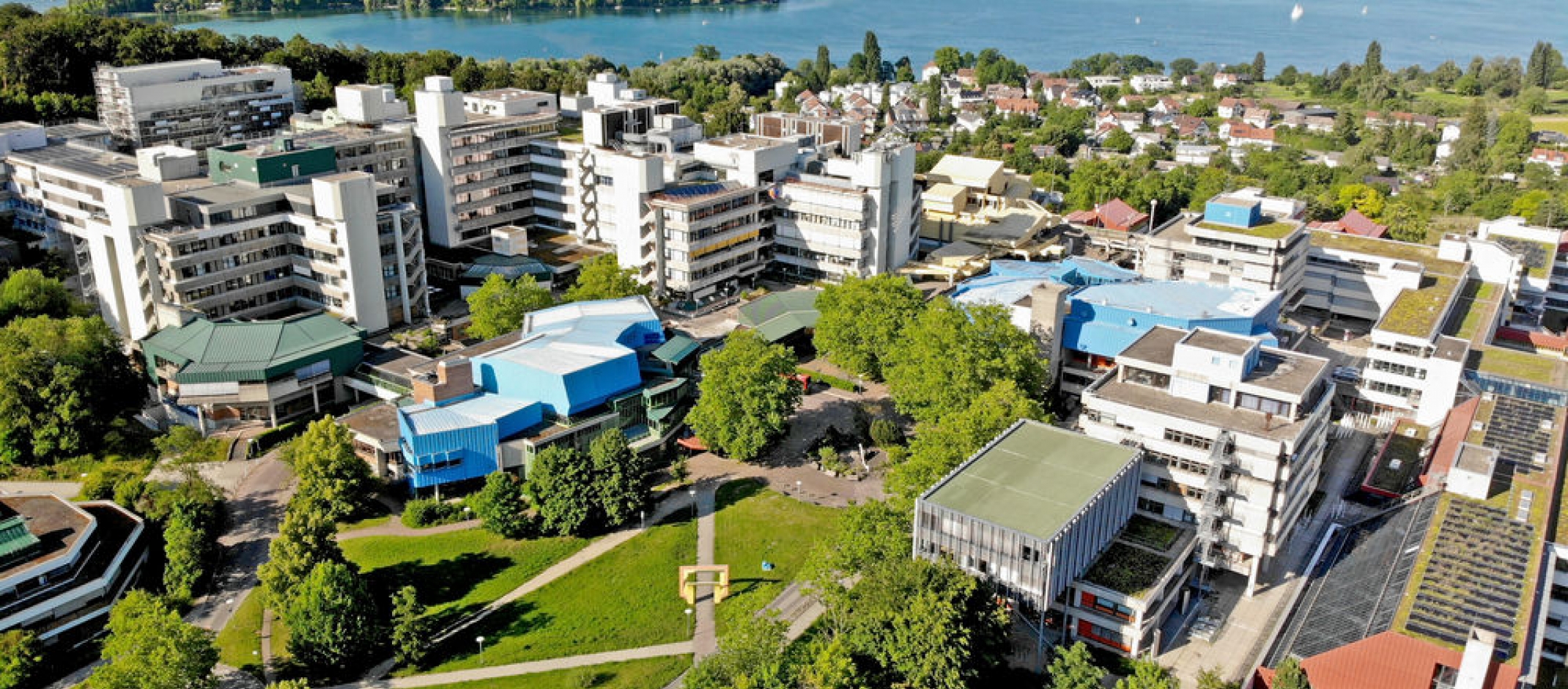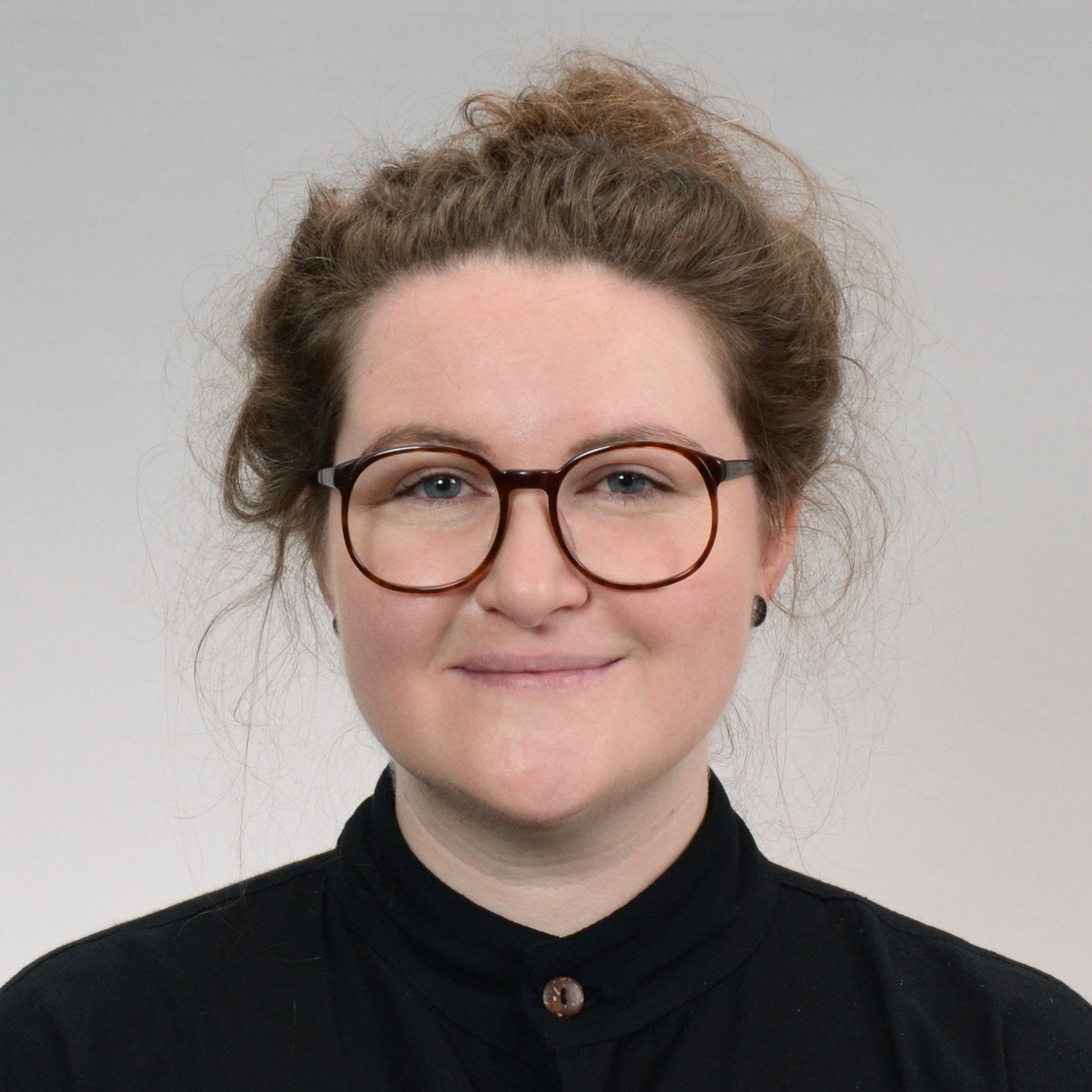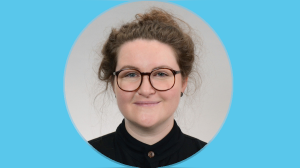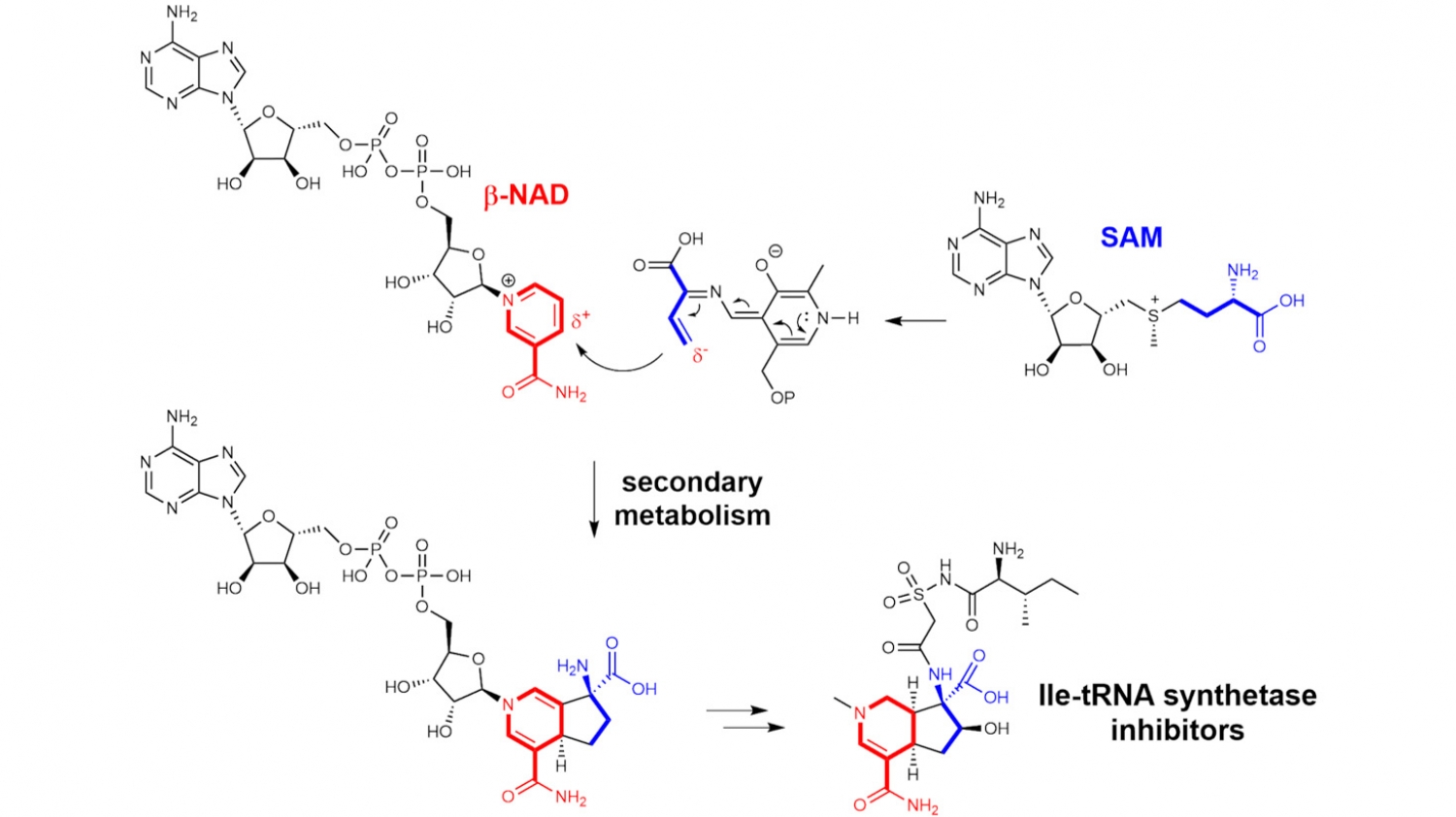Arriving in Konstanz – interview with chemist Lena Barra

Ms Barra, you came from the metropolis of Tokyo to the tranquil Lake Constance area. Why did you decide to apply at the University of Konstanz?
I have to admit: As I am from northern Germany, Konstanz appeared very far south. However, I already knew some of the Konstanz scientists and their research and was sure that my research would fit. What's more is that, in Konstanz, the Departments of Biology and Chemistry work closely together across the disciplines on great projects. That was a real plus for me, as my research interests involve both chemistry and biology. You see, my own team is very interdisciplinary and therefore fits wonderfully into this concept: We have a molecular biologist, a chemist, someone who studied chemical biology, and a person with a pharmaceutical background.
Were there other decisive points that spoke in favour of the University of Konstanz?
That I ultimately accepted the call to Konstanz – I was in the fortunate situation of having received another offer – was also down to my experiences during the appointment process. I was really impressed with how that was done in Konstanz. The staff made a lot of time for me, and I was able to get to know students as well as many future colleagues in one-on-one meetings, for example with Andreas Marx and Jörg Hartig. This way we were able to exchange ideas beforehand, and I got useful insights into the research projects, and what the vision of the biologists and chemists in Konstanz is. I quickly realized that I fit in very well and that there is also genuine mutual interest in each other and in each person's research.
Lena Barra was appointed as a tenure-track professor for systemic chemical biology at the University of Konstanz in May 2022, where she has headed the Emmy Noether Junior Research Group "Identification and biosynthetic studies of NAD-derived natural substances" since 2023. Her professorship is funded by the Joint Federal Government-Länder Tenure-Track Programme.
Can you briefly outline what your research is about?
With great pleasure. Simply put, I am interested in the discovery and application of new enzyme chemistry. Enzymes could be described as the chemists of the cell. They convert chemical substances in our cells and build new ones – and very efficiently at that. This makes them very interesting as biocatalysts for sustainable manufacturing processes of active agents and fine chemicals. However, if you want to use enzymes as a real alternative or supplement to classical synthetic chemistry, you need a whole toolbox with many different enzymes and reactivities. And that's what we're looking for.
Where do you look?
This is where my scientific background as a natural products chemist comes in, because we are looking at the biosynthetic pathways of natural products. As the name suggests, these are substances or compounds found in nature that are produced by plants, bacteria or fungi, for example. They are often very potent bioactive ingredients, which is why many of these substances are used as medicines. Antibiotics, for example, are almost three-quarters based on natural products. Natural products also exhibit very interesting and complex molecular structures. This inevitably raises the question: How does nature do it? And that's when we come full circle to enzyme chemistry, because it is enzymes that act as biocatalysts in the production of these natural substances. And because of the complex nature of these compounds, you often find very intricate and super exciting enzyme-mediated chemistry in these cellular processes. That is what we are studying, with the aim to find, understand and apply novel enzymes for biocatalytic applications.
Methodologically, this is probably extremely complex, right?
There are definitely many levels to consider. This involves, for example, the identification of new natural products, the elucidation of the genetic and enzymatic basis of their cellular production, and the subsequent investigation of the specific enzyme mechanisms. And each of these levels requires very specific research methods. That is why my team members have such diverse backgrounds. At the University of Konstanz, there is also shared infrastructure – the core facilities – such as our Proteomics Centre or our Sequencing Analysis Core Facility. This gives me access to equipment and know-how that I couldn't afford or easily establish on my own. What's more, various opportunities for collaboration open up because we are all really interested in each others' research, the university's structures are uncomplicated and distances on campus are short.
For example, our team would like to work together with structural biologist Olga Mayans, who has all the infrastructure and know-how to study the spatial structure of newly discovered enzymes, and who has indicated to me from the beginning that she is interested in a research collaboration. Another collaboration is planned with Tanja Gaich from the field of organic synthetic chemistry, in which we aim to combine organic chemical methods with enzymatic reaction to explore new and sustainable approaches for the production of active agents. Or Dieter Spiteller from the field of biology: Like my team and me, he is interested in natural substances, but from an ecological perspective. For questions like: What is the function of these molecules in a biological context? Dieter Spiteller employs a very broad range of methods, and we are very fortunate to be able to use a lot of equipment in his laboratory.
So you have one foot in the Department of Biology?
Yes, without question, and the other foot is firmly in chemistry: We have, for example, a connection to the research group of Jörg Hartig, who is interested in enzyme families similar to the ones I am studying. Another connection is to Andreas Marx's research group. For example, we are looking at a very specific class of natural products which are derived from nicotinamide adenine dinucleotide (NAD) and which I discovered during my time as a postdoc. There are bacteria that use NAD as a building block to produce structurally unique natural products. However, NAD also plays an important role in the context of protein modifications, an aspect that Andreas Marx investigates in his research. So you see: There is indeed a great deal of overlap and therefore many points of contact for joint projects.
© Lena BarraLena Barra has discovered a new class of natural compounds that consist of NAD as a basic building block.
This means that we early career researchers already have a lot of opportunities to make a contribution. For example, we take part in all important meetings, be it the regular professorial meetings or meetings to plan and design future major projects and research consortia. I've been here for just under a year and a half now, and from the very beginning I've had the feeling that I have every freedom with regard to my own research, and, at the same time, that I'm allowed to help shape the big picture – something that's not only possible here, but even desired.
"What also clearly helps are the flat hierarchies at the University of Konstanz. The doors of the other research team leaders are always open to me – even those of the most established colleagues. And you feel that your own opinion and expertise are taken seriously and valued."
Lena Barra
So would you say you have "arrived" at the University of Konstanz?
Yes, definitely. I was met with great support and friendliness as well as outstanding help for getting started in Konstanz. And I'm not just talking about colleagues in my department, but about the entire university. It starts with Facility Management, which approached me of its own accord to support me in setting up my lab rooms. It includes the Equal Opportunity Office, which proactively offered me dual-career options, and extends to very specialized units, such as the Welcome Centre, which supports me in recruiting international staff members. This saves an incredible amount of time and energy – two extremely valuable resources when your own research team is in the process of being established.
There is also a financial instrument for early career researchers at the University of Konstanz – the Young Scholar Fund – from which I have benefited greatly. It's kind of like a start-up funding programme for larger externally-funded projects. The fund helped me in a very concrete way to kick off and continue my work directly after my appointment as professor, while I was waiting for a decision on my Emmy-Noether application. When the assessment in this funding context took place, I was already able to present some preliminary work done here in Konstanz, and that was certainly helpful. So "arriving" here was made easy for me in many respects.


